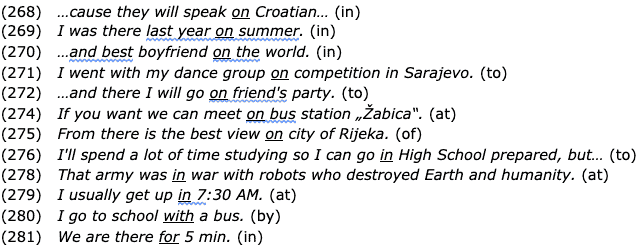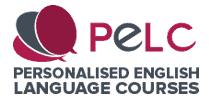English language proficiency in Croatia
I lived in Serbia for four years and I must say that Serbian people generally speak very good English. But what about English language proficiency in Croatia? With Serbia and Croatia being next door neighbours and essentially sharing the same mother tongue, my impression is that there’s not much to choose between the level of English spoken by Serbs and Croatians.
Better qualified than me to assess English language proficiency in Croatia is Jakob Patekar, lecturer at the Rochester Institute of Technology (RIT) in Zagreb. It was Jakob’s article: “A possible order of Teaching Tenses in Primary School”, which gave me the motivation to propose my own spoken English syllabus for intermediate students in Poland.
Jakob kindly agreed to write a guest post for English Coach Online. So, let’s see the state of play with English language proficiency in the beautiful country of Croatia. Over to Jakob.
_______
Do Croatians speak English well?
According to a popular (but not scientifically rigorous) survey of English language proficiency, the English Proficiency Index 2020, Croatia ranks 13th among a hundred countries, which places it at the top of the high proficiency group:

Part of English Proficiency Index 2020
Anecdotal evidence suggests that Croatians speak English exceptionally well. Many tourists and businesspeople from English-speaking countries who come to Croatia are often pleasantly surprised when they realise that many Croats do speak English and that they speak it quite well – at least at a level where one doesn’t have to struggle to understand what is being said. So, what makes Croatians good speakers of English?
How did we get here?
Croatia has a long history of foreign language learning. However, if we look just at the 21st century, a significant step was made in 2003. In this year, the government introduced a mandatory foreign language from grade 1 of elementary school (children aged 6 or 7). This remains as the child’s first foreign language until the end of grade 8. As is evident from Figure 1 below, for most students this language is English (Košuta, Patekar, & Vičević Ivanović, 2017). By the end of elementary school, students will have had 700 of English classes. Moreover, students can choose an elective foreign language in grade 4 of elementary school.

Figure 1. Proportion of students according to foreign languages they were learning in Croatian elementary schools from 2004/2005 to 2014/2015
Students continue with foreign language learning in high school as well. Once again, English is the most popular choice (Figure 2, Košuta, Patekar, & Vičević Ivanović, 2017).

Figure 2. Proportion of students according to foreign languages they were learning in Croatian high schools from 2004/2005 to 2014/2015
Nonetheless, it wouldn’t be fair to credit just the public schools for Croatians’ English language proficiency. Private foreign language schools that offer courses in a variety of languages are quite popular in Croatia. Predictably, English takes precedence in these schools. In addition, many young children start learning English in kindergarten. Equally important is non-institutional learning, or exposure to English through the media. Studies (e.g., Buljan Culej, 2012; Mihaljević Djigunović, Cergol & Li, 2006; Mihaljević Djigunović & Geld, 2003) have shown that Croats immerse themselves in English and can learn it through what they hear and read in their surroundings. Indeed, series and films are generally not dubbed, but have subtitles. Moreover, American popular culture reaches children through songs, computer games and social media.
But, is everything as perfect as it seems? Of course, not. There are some areas of language learning that are particularly challenging for Croatian speakers of English.
What poses a challenge for Croatian users of English?
The best way to answer this question is to look at the most common errors Croatian learners of English make. The data comes from my doctoral thesis that I defended in 2017 (Patekar, 2017). In this work, I looked at the errors made in the written output of grade 8 learners. But before we delve into that, let’s see what a study revealed about grade 8 learners’ proficiency in 2011 (Figure 3, based on Buljan Culej, 2012). The study tested students’ reading, listening, and writing skills.

Figure 3. CEFR levels of learners in grade 8 of elementary school
The aim of the national curriculum at the time was for students finishing elementary school to reach A2 level. In fact, almost half of the students were above that threshold.
Back to errors. First, it’s interesting to note that the minority of errors found in the students’ work in my study were interlingual as opposed to intralingual. In other words, the influence of the students’ native language caused 21% of the errors (Figure 3, adapted from Patekar, 2017). Today, we talk about crosslinguistic influence, which was previously known as (negative) transfer. The reason for this change is that languages in the brain tend to help each other, working together as a linguistic repertoire. Only a minor part of this interaction results in errors. Even then, these errors still serve the purpose of getting one’s idea across, which is much better than being silent. That is what communicative competence is about, isn’t it? This potential of several languages working together in the mind was previously known as multicompetence (Cook, 1992), but today is most often referred to as plurilingualism or translanguaging.

Figure 4. Proportion of interlingual and intralingual errors in the total number of errors
The most frequently found errors were spelling errors, followed by those in the use of articles, then lexical errors, and prepositional errors. Less frequent errors concern the use of tenses, syntactic errors, and congruency errors (Figure 4, adapted from Patekar, 2017).

Figure 5. Percentage of students who make the given errors
Seeing that intralingual errors are alike across different first languages, including English, let’s look at interlingual errors that might be more specific to Croatian learners.
Obviously, spelling is an issue because in Croatian the phoneme-grapheme correspondence is quite high. Unlike in English, in other words, Croatians write the way they speak. Also, some punctuation and capitalisation rules differ from those in English.
Typical errors Croatian learners of English make
Here are some examples of spelling errors made by Croatian learners, influenced directly by how the words are actually spelled in Croatian:

However, the majority of spelling errors result from not being able to memorise how a word is spelled, rather than transfer from the first language due to similarity (as in the cases above). If you look carefully, you’ll see that such errors could easily be found among speakers whose first language is English:

Should spelling errors concern us? Not too much, no, as everything that students write today outside of school is automatically spellchecked on their phones, tablets, and laptops. What interests me more are lexical errors, especially when motivated by Croatian. These could be errors in the use of collocations, such as:

My favourite examples are entirely made-up words that the students created based on their first language:

Isn’t it amazing that a learner can create a new word that doesn’t sound all that bad? I’m pretty sure other speakers would’ve understood what the students in these cases wanted to say.
A particularly fun example concerns the students’ attempt to say that they ‘go to the beach’. Many learners make the following mistake:

Interestingly, to ‘go to sea’ is not ungrammatical – it means ‘to become a sailor’, but I presume that is not something the students wanted to say.
Here are some other lexical errors, which occur when a student tries to use a word that is close in meaning but doesn’t really fit the context:

Students are also often confused by grammatical gender, so they make mistakes such as:

Finally, the last category of errors that I’d like to mention is particularly impactful on Croatians' English language proficiency: prepositions. Students can master tenses and collocations quite successfully and reach high levels of proficiency. Nevertheless, prepositions are there to confuse and trouble them along the way and well into their most advanced levels. With prepositions, there is a great deal of transfer from the first language:

Sometimes, our students have a perfect pronunciation. The only way a person from an English-speaking country can tell that English isn’t the students’ first language is the way they use prepositions. Rather interesting, right? Still, prepositions pose a challenge for speakers of other languages as well. Unfortunately, the world of English language teaching has yet to find the right approach to teaching prepositions successfully.
Why should teachers care about the most common errors?
Errors, whether they come from one’s first language or are intralingual, are a normal, expected part of the learning process. As teachers, we instinctively look at what a student doesn’t know and what should be corrected. However, I believe we should train ourselves to first look at what a student can do, and celebrate that, because learning a new language is a big deal. Knowing what the most common errors are can help teachers to prioritise and focus attention. Croatian learners, it has been shown, don’t have that many problems with tenses. This is because, unfortunately, teaching grammar takes up a lot of class time. For many English language teachers in Croatia, grammar is the most important aspect of language learning and teaching.
Interestingly, when researchers asked people from English-speaking countries what errors they found the most serious, as in, that affect the communication the most, they said – lexical errors (James, 1977; Santos, 1988). In other words, not whether we’ll drop an auxiliary verb in the present continuous, but whether we can use the right word at the right time (or, as collocations go, in the right context). So, it seems, vocabulary building should be key when it comes to greater English language proficiency among Croatians.
There are many fantastic English language teachers in Croatia, which is the reason many students will tell you that their favourite subject is English. Nevertheless, there’s certainly room for improvement. In 2019, a new national curriculum was introduced that aims to shift the focus away from explicit grammar teaching and testing to developing communicative competence, learner autonomy (through self-assessment and peer assessment), and intercultural competence. We’ll see if that helps keep Croatia at the top of the list of countries with highly proficient English speakers, or even find its place among the top ten.
References
Buljan Culej, J. (ur.). (2012). Prvo europsko istraživanje jezičnih kompetencija: Završno izvješće. Zagreb: Nacionalni centar za vanjsko vrednovanje obrazovanja.
Cook, V. (1992). Evidence for multicompetence. Language Learning, 42, 557–591.
James, C. (1977). Judgments of error gravity. English Language Teaching Journal, 31, 116–124.
Košuta, N., Patekar, J., & Vičević Ivanović, S. (2017). Plurilingualism in Croatian foreign language policy. Strani jezici, 46(1-2), 85–100.
Mihaljević Djigunović, J., Cergol, K., & Li, Q. (2006). Utjecaj medija na nenamjerno usvajanje engleskog vokabulara. U J. Granić (ur.), Jezik i mediji – jedan jezik: više svjetova (str. 445–452). Zagreb, Split: Hrvatsko društvo za primijenjenu lingvistiku.
Mihaljević Djigunović, J. & Geld, R. (2003). English in Croatia Today: Opportunities for Incidental Vocabulary Acquisition. Studia Romanica et Anglica Zagrabiensia, XLVII-XLVIII, 335–351.
Patekar, J. (2017). Utjecaj hrvatskoga kao materinskoga jezika na pisani ostvaraj na engleskome kao stranome jeziku kod učenika osmoga razreda. Doktorska disertacija. Filozofski fakultet, Zagreb.
Santos, T. (1988). Professors' reactions to the academic writing of nonnative-speaking students. TESOL Quarterly, 22(1), 69–90.




